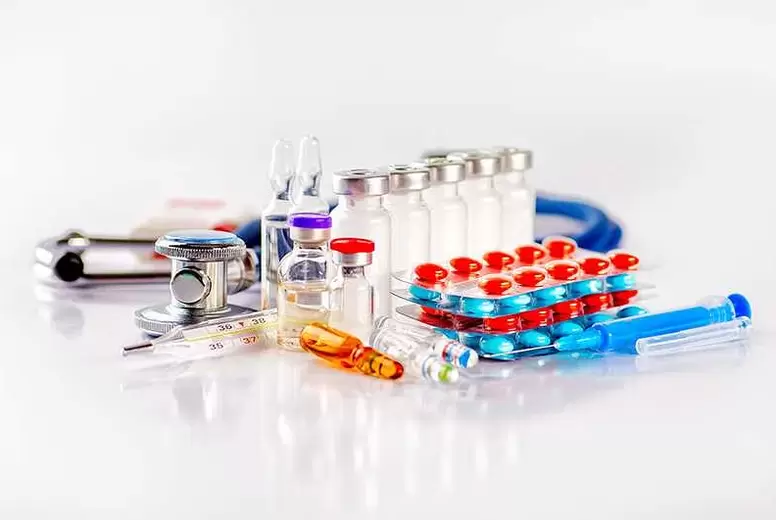Cystitis: a problem faced by many women
What is cystitis?
What causes cystitis?
Causes of cystitis in women
Women are also at risk for cystitis due to the changes of pregnancy and menopause. Pregnant women often experience urinary flow problems, and menopause can cause estrogen levels to drop, increasing the risk of urinary tract infections.
Symptoms of cystitis in women
Other symptoms of cystitis may include a feeling of pressure in the bladder, pain during intercourse, an unusual urine smell, and a constant urge to urinate even when urinating does not improve symptoms. Some women experience a range of symptoms leading to fatigue, decreased performance and convulsions.
How to Diagnose Cystitis in Women
Symptoms and Characteristics of Disease
How to diagnose
The importance of consulting a doctor promptly
receive treatment

- In order to achieve the therapeutic effect, attention should be paid to the treatment plan and dosage of antibiotics.
- Some antibiotics may interact with other medications, so be sure to check with your doctor.
- During treatment, additional tests may be needed to make sure the treatment is effective and without complications.
What antibiotics are used to treat cystitis?
One of the most effective antibiotics for treating cystitis in women is a phosphonic acid derivative. This medication is usually taken as a single dose and works well in treating cystitis.
Types of Antibiotics Used to Treat Cystitis in Women
How to take antibiotics correctly for cystitis?
- Follow your doctor's advice.The dose of antibiotics should be based on the severity of the disease and the patient's individual characteristics. Do not change dosage or duration of use without consulting your doctor.
- The optimal interval between taking antibiotics is 12 hours.
- It is recommended to take antibiotics at the same time to ensure a constant concentration of the drug in the blood.
- Limit alcohol consumption while taking antibiotics as this may affect the effectiveness of treatment.
- If you forget to take an antibiotic, do not take the missed dose; take the next dose at your usual time.
Side effects of antibiotics treating cystitis
diarrhea
allergic reaction
kidney problems
Reduced effectiveness of other medications
Other side effects
Duration of Antibiotic Treatment for Cystitis
Disadvantages of Antibiotic Treatment for Cystitis
- Antibiotic addiction.Long-term use of antibiotics can cause bacteria to become resistant to the drugs, making future treatment more difficult.
- side effect.Antibiotics can cause various side effects, such as nausea, vomiting, diarrhea, allergic reactions, etc.
- Negative effects on microbial communities.Antibiotics not only kill pathogenic bacteria, but also the good bacteria in the body. This disrupts the balance of the microbiome and leads to dysbiosis.
- Drug costs are high.Some antibiotics can be very expensive, making treatment difficult for many patients.
What other treatments are available for cystitis in women?
1. Anti-inflammatory drugs
2. Herbal medicine
3. Increase the amount of water
4. Avoid caffeine and alcohol
5. Heat therapy
6. Preventive measures
How to prevent complications when using antibiotics to treat cystitis
Treatment of cystitis in women during pregnancy
Treatment characteristics
drug choice
prevent disease
What antibiotics can be taken for lactation cystitis?
Advice after a course of antibiotics
- Drink more water.It is important to maintain optimal hydration levels, especially during the first few days after completing a course of antibiotics.
- Maintain good hygiene habits.Shower regularly, use hypoallergenic hygiene products, and avoid wearing synthetic underwear for long periods of time.
- Avoid stress.Stress can negatively affect the immune system and lead to the development of inflammatory processes, including cystitis. Try relaxation techniques such as yoga, meditation, or taking a warm bath.
- Eat well and drink well.Make sure your diet contains enough fruits, vegetables, protein and healthy fats. Avoid fast carbs, red meat, fatty and fried foods, alcohol and eggs.
Tips for preventing cystitis in women
drink enough water
maintain personal hygiene
Avoid urinary retention
Use a condom
Balanced diet
When should you see a doctor if you have recurring cystitis?
- hot;
- blood in urine;
- Pain on one side;
- Unable to urinate.





























